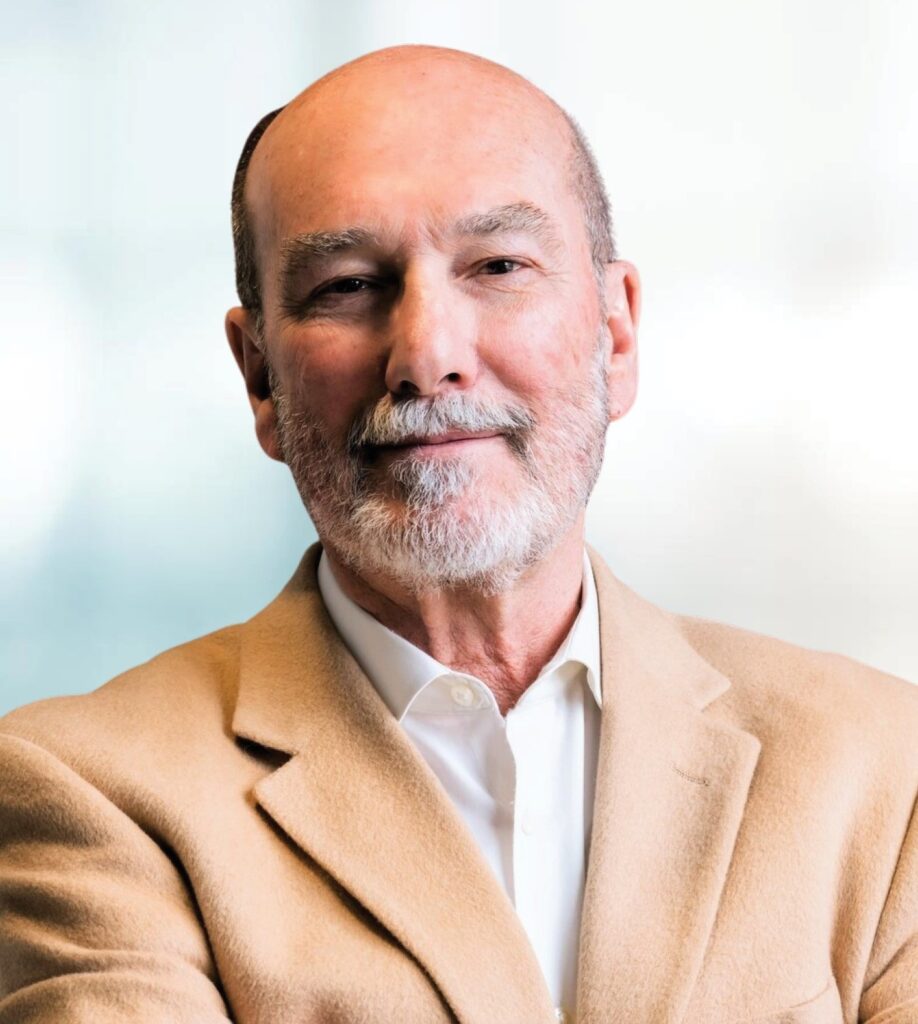
Dear Community and Funded Partners,
May 2, 2024
When I was named President & CEO of the Buell Foundation in late 2022, I realized that, although I had served on the Board of Trustees for the Foundation for more than a decade, I was relatively unknown to our hundreds of partners and colleagues in the state. So I asked the staff at Buell to prepare a “Tour of the State” of Colorado. The purpose for the Tour was to introduce myself with a three-fold message: (1) to communicate what was NOT changing about Buell; (2) to articulate what we did hope to change; and (3) to listen.
Over six months, beginning in May 2023, Buell staff and I traveled more than 4,700 miles throughout Colorado, meeting in 28 cities or towns; we talked at length with 250 leaders from 40 counties in more than 65 meetings. We met not only with early childhood (EC) and related agencies and advocates with whom we have been partners for decades, but also with other champions for children in their respective communities.
I wanted to emphasize three unchanging components of Buell. First, our primary focus would remain in EC, as it has been since the 1990s. Second, having funded EC efforts in every county of the state, we would continue to fund programs throughout the entire state of Colorado. No community has a monopoly on either EC issues or effective solutions. Third, unlike some funders that will support the launch of a program, but not its continuation, Buell would continue to consider sustained funding for programs that align with our guidelines. Excellence has no shelf life.
I also wanted to communicate what we do hope to change at Buell: strengthening our approach to advocacy for EC. As a private foundation, we cannot lobby for specific proposals. But we can enhance our roles as advocates to help the most vulnerable residents in the state—our young children—receive a strong start in life. My entire career has been one of advocacy, first as an attorney with extensive experience in both courtrooms and government, then as the President & CEO of Rocky Mountain Health Plans, a community-based nonprofit headquartered in Western Colorado. Over those decades, I have learned that advocacy is most effective when it is fueled by a passion to do the right thing. And it can be contagious, whether persuading juries, policymakers, or communities. Elevating the importance of issues in EC could unite Coloradans across lines of ideology, gender, geography, occupation, and cultural background. We all should care about kids.
But the most valuable part of these 65 meetings was not what I said, it was what I heard … and saw. Our work at the Buell Foundation covers the entire EC system—from comprehensive sex education that helps to ensure that infants are born into families who are ready for them to parenting education and systems-building. I learned from all these areas during the Tour, but time and again I heard that the biggest issues and opportunities we face today pertain to child care.
Challenges
In my career, I have been fortunate to work with many whose primary focus is serving others, including doctors, nurses, firefighters, and police officers. No occupation surpasses EC workers for their dedication to do so much for so little. These professionals generally make less money with fewer benefits than workers in fast food or big box retail stores, yet they have far more demanding duties and more impactful jobs. They do this for one singular reason: they are passionately committed to guiding the children of their community through the all-important early years of life.
Most families today simply have no option for a stay-at-home parent. All available parents must earn money outside the home just to provide the basics of food, shelter, clothing, health care, and transportation. Despite a cost of $15,000 to $20,000 per child per year, which is unaffordable for many families, EC centers often do not generate enough income to provide a competitive wage for workers, resulting in significant shortages in child care services, and eroding the ability to develop a robust and experienced workforce. As noted by both the Chair of the Federal Reserve Board and the U.S. Secretary of Commerce, child care in America is a broken private sector market. Colorado is no exception.
The challenges in child care are not just workforce and compensation, but also include a shortage of available child care placements and facilities. Addressing these issues requires a multi-faceted approach to a number of problems: the inadequate number of qualified employees; a shortage of spots for child care, especially for kids under the age of two; and a lack of quality facilities.
This lack of affordable, quality child care impacts the entire community, including employers, schools, health care, and law enforcement. Chambers of Commerce and Economic Development Councils throughout the Tour emphasized that employers realize that child care in their communities is a critical component of employee retention. The lack of quality care has prompted employers to relocate their business, damaging the economic health of a community.
Community Solutions
Communities throughout the state are developing myriad approaches to address the challenge of providing quality child care. Some of the more notable examples follow:
Several communities—from Denver to Telluride—began years ago to develop a public funding stream for EC. They learned how to effectively present the issue to the public. In Telluride, for example, early efforts that were focused on the importance of infant development, while accurate, were unpersuasive to a majority of voters; by contrast, emphasizing quality child care as an essential component of a strong workforce in order to create a robust local economy was successful.
Other communities—from Fort Collins to Alamosa—have been pursuing new measures for public funding. Lessons can be learned from both successes and shortfalls, such as ensuring the support of other key local child care advocates; having a defined budget and specific plan; and assessing the local political and economic environment that may change with each election cycle.
One key theme we heard is that many parents prefer informal care arrangements for their children (i.e., family, friend, and neighbor) for a variety of reasons including cultural or religious connections, cost, accessibility, and family relationships.
Employer-based onsite child care facilities at the Steamboat Ski Corporation in Steamboat Springs and Community Hospital in Grand Junction were catalyzed by EPIC (Executives Partnering to Invest in Children) and driven by employee champions, providing child care for employees, as well as creating additional spots for the community at large.
In Southwest Colorado, affordable and energy-efficient housing is being erected with a requirement that a portion of the construction be used for a child care center. Affordability is driven primarily by the fact that the houses are constructed in a factory offsite and then transported.
Unify America chose Montrose, Colorado as the first town in the nation to convene representatives across the community with diverse backgrounds to meet over several months to design local solutions to the community-wide challenge of inadequate child care; an effort that was supported by local government officials of both political parties in city and county government.
Advocacy and Allies
While the Tour was inspired by the value of engaging with Buell’s partners on the ground, we asked those leaders to identify other community champions who were committed to address EC issues. I was thrilled with the resulting number and diversity of these supporters. They included school superintendents in districts like Durango, Salida, and Montrose, who are visionary about the need to include EC as part of an educational focus from birth to beyond high school.
Similarly, we discovered a broad band of advocates in the business community, including Economic Development Councils from Limon to Craig and Chambers of Commerce from Pagosa Springs to Fort Collins, which are increasingly aware of the importance and impact of EC challenges on local economies.
We also found strong support for EC issues among local governments, including city government officials in Montrose, Pagosa Springs, and Pueblo, as well as County Commissioners in Moffat, Routt, Montrose, and Archuleta Counties. Elected officials in both parties recognize that a healthy community requires an effective and future-focused approach to quality child care and EC development.
EC leaders applauded Buell’s increased focus on advocacy. For Buell Fellows, who proudly tout their affiliation with the Buell Early Childhood Leadership Program, as well as many other professionals in programs that we have consistently funded or encouraged to higher performance, Buell is a “natural” leader to take a more prominent role in advocacy. These local champions in turn can connect us to other allies in their respective communities in business, education, and local government.
Many EC leaders on the Tour asked for Buell’s assistance to help them develop or enhance their own advocacy skills in their respective communities. Outstanding programs from Alamosa to Hayden, and from Telluride to Fort Collins, shine like beacons in their local EC world but have not been spotlighted in their broader local communities or knitted together in the best way to let us all learn from each other.
Buell is in a unique position to step forward as a key champion for kids. As we expand our role in advocacy as well as direct grantmaking, we bring a stature in EC built over decades. Buell has maintained a keen focus on EC since the 1990s, developing a staff with expertise in the field upon which others rely and a reputation for excellence. And our long-standing commitment has a footprint throughout the entire state.
As the Board and leadership at Buell consider the breadth and depth of the challenges of EC, as well as the many successful local community approaches, one potential role of Buell might be to assemble a “toolbox” of solutions for communities to consider. Making those tools understandable, available, and accessible could be facilitated by assembling a broad-based alliance of advocates and providers from across the state to help Buell leadership learn, prioritize, and present a variety of approaches with proven success for the consideration of communities and policymakers.
We at Buell recognize that success is built by supporting children and their parents, as changes are made at a systems level by our partners in the local communities of Colorado. Buell stands ready to help.


Steve ErkenBrack, President & CEO, Buell Foundation
